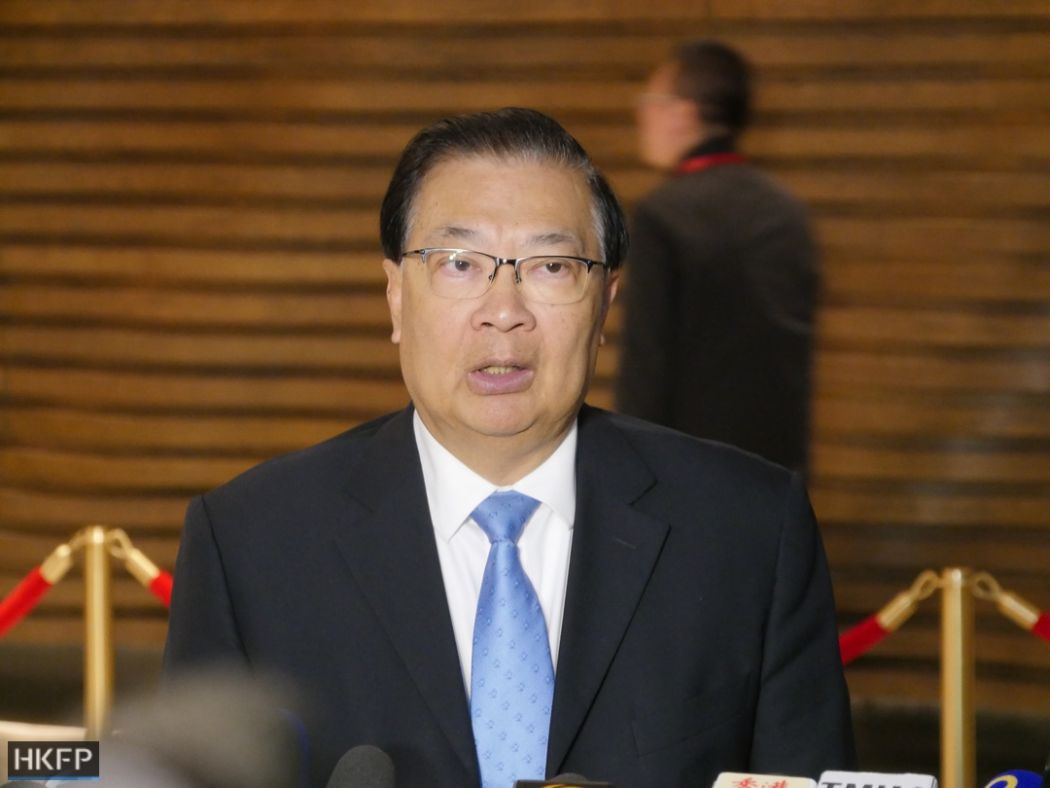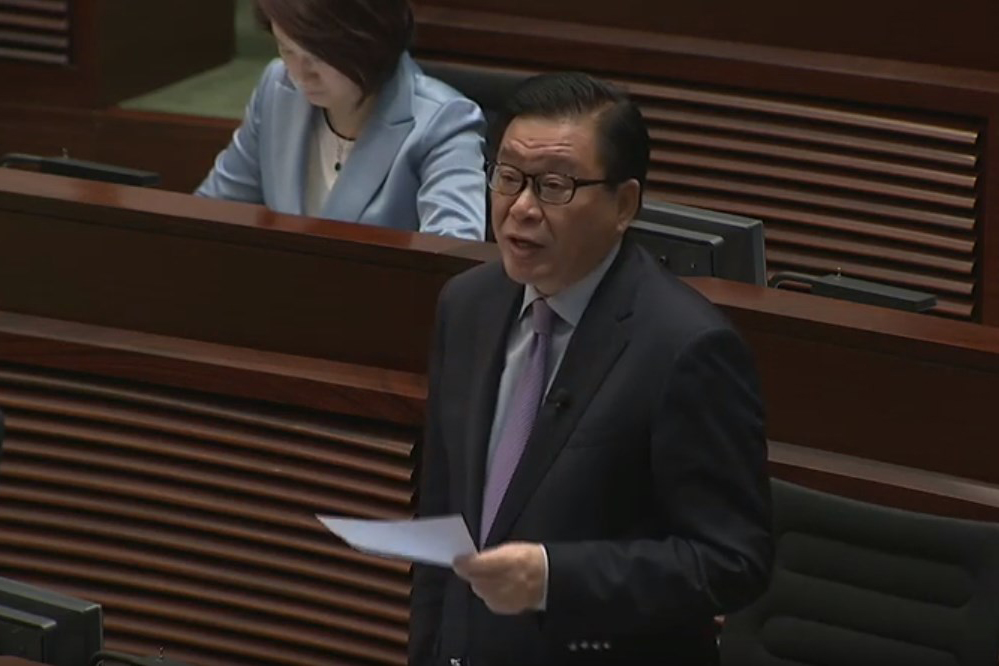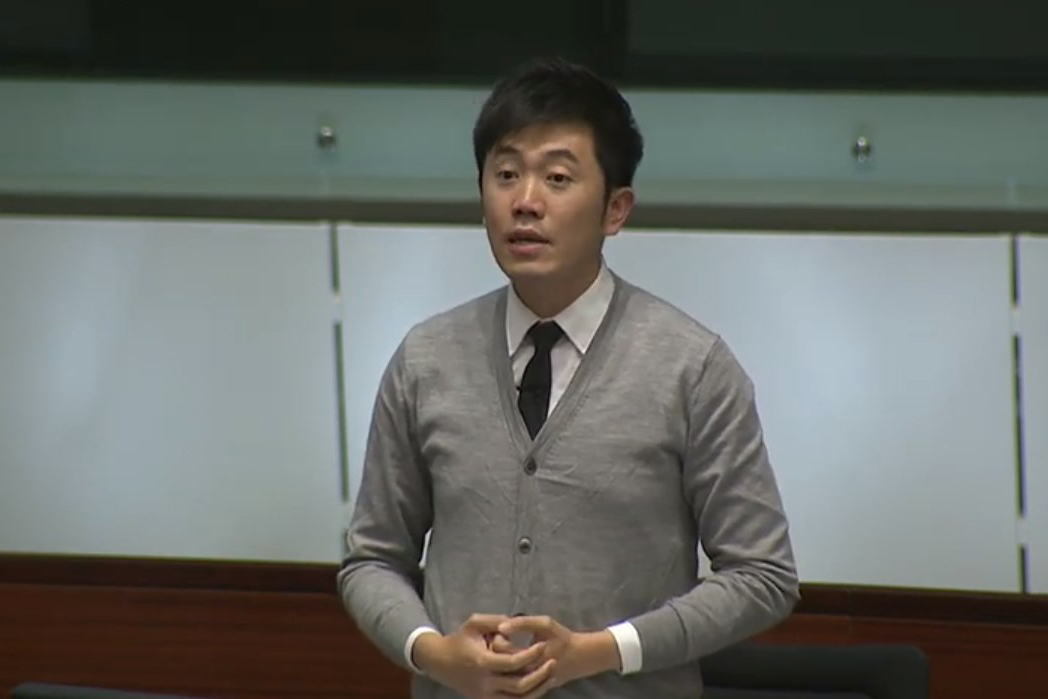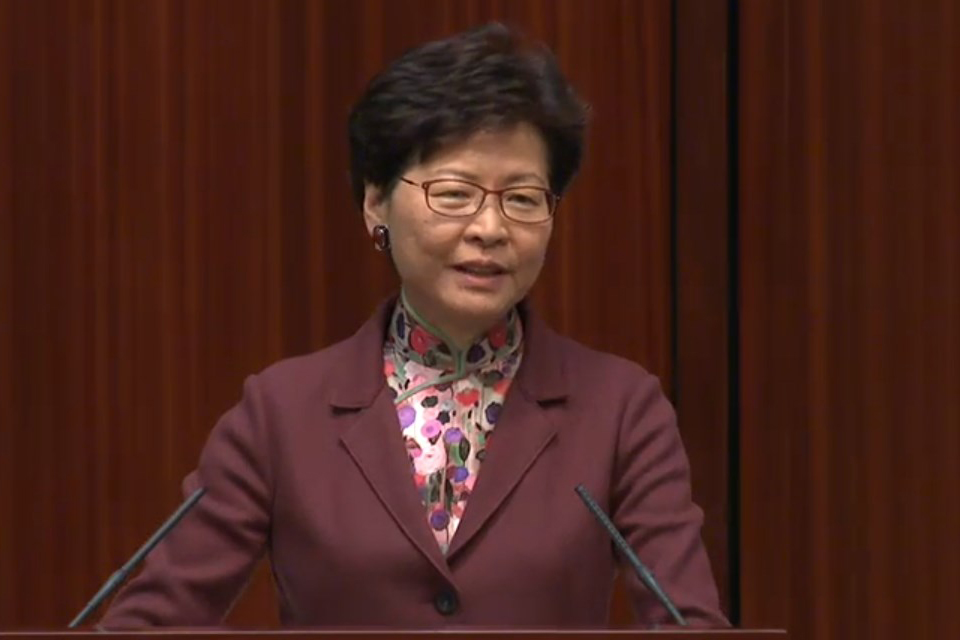A member of the Standing Committee of China’s top legislature has said that Beijing has no opinion over whether the Hong Kong government should remove economic crimes from a list of offences in its extradition law reform plans.
The business sector has voiced concern about the government’s proposal, which would allow the city to accept extradition requests from the mainland and Taiwan, including for offences relating to financial crime. The Hong Kong General Chamber of Commerce had said that any update to the law should be handled with extreme caution and not rushed.
The 46 crimes listed in the plan include offences relating to fiscal matters, taxes or duties, offences relating to securities and futures trading, as well as crimes relating to false or misleading trade descriptions, among others.

Tam Yiu-chung, a National People’s Congress Standing Committee member, told an RTHK radio programme on Wednesday that Hong Kong could remove economic crimes from the list of offences.
“If [the list] is so wide… people are concerned – if it is narrowed a bit, I don’t think it would be a big problem,” Tam said.
Tam said he would not speculate over the central government’s views on removing the economic crimes from the list, “but I think the central government has no opinion with that,” he said.
He added that Beijing was also willing to listen to opinions from Hong Kong in its amendment of the Individual Income Tax Law and the Foreign Investment Law.
Business sector pressure
At a regular Q&A session at the legislature with Chief Executive Carrie Lam on Wednesday, Business and Professionals Alliance for Hong Kong party lawmaker Jeffrey Lam asked if the government could remove provisions to extradite people for less serious commercial and economic crimes.
He also asked if the plan could be amended so that the extradition procedures could only be triggered by a request from the Supreme People’s Court in China.
Lam said the Security Bureau conducted a consultation, in which a majority of the respondents supported the plan. She said the security secretary will deliver a comprehensive response after considering different opinions.

She also said that the 46 crimes listed in Fugitive Offenders Ordinance were included in extradition agreements with other countries and territories, and the government did not create them out of nowhere. “But as it has caused concern in society, we will – of course – be very willing to look into this once again,” she said.
Taiwan rejection
The move was spurred by the case of Poon Hiu-wing, a pregnant 20-year-old Hong Kong woman who was killed during a trip to Taiwan last February. Hong Kong authorities arrested the woman’s boyfriend Chan Tong-kai but were unable to charge him with murder in local courts. He is, instead, being held on theft charges and has yet to go to trial.
Civic Passion lawmaker Cheng Chung-tai asked Lam if the Hong Kong government had consulted Taiwan about the plan to amend the extradition laws.

Lam said that Taipei had written to Hong Kong on multiple occasions to ask for its assistance in the murder case.
“Without a way to provide assistance, we cannot conduct the discussion or other work mentioned by lawmaker Cheng. But we replied once last year to tell [Taiwan] how we can provide help,” she said.

Beijing does not recognise Taiwan as an independent country and insists it is a renegade Chinese province.
Lam said Hong Kong will propose a discussion with Taiwan, once there is a method to handle extradition requests on a case-by-case basis agreed by both sides.
But Cheng asked whether Lam would retract the proposal after Taiwanese lawmakers said they would reject Hong Kong’s plan.
Lam did not give a direct answer, but said the proposed amendments were to plug a loophole in the current mechanism, and could be used for cases concerning other countries and territories.
